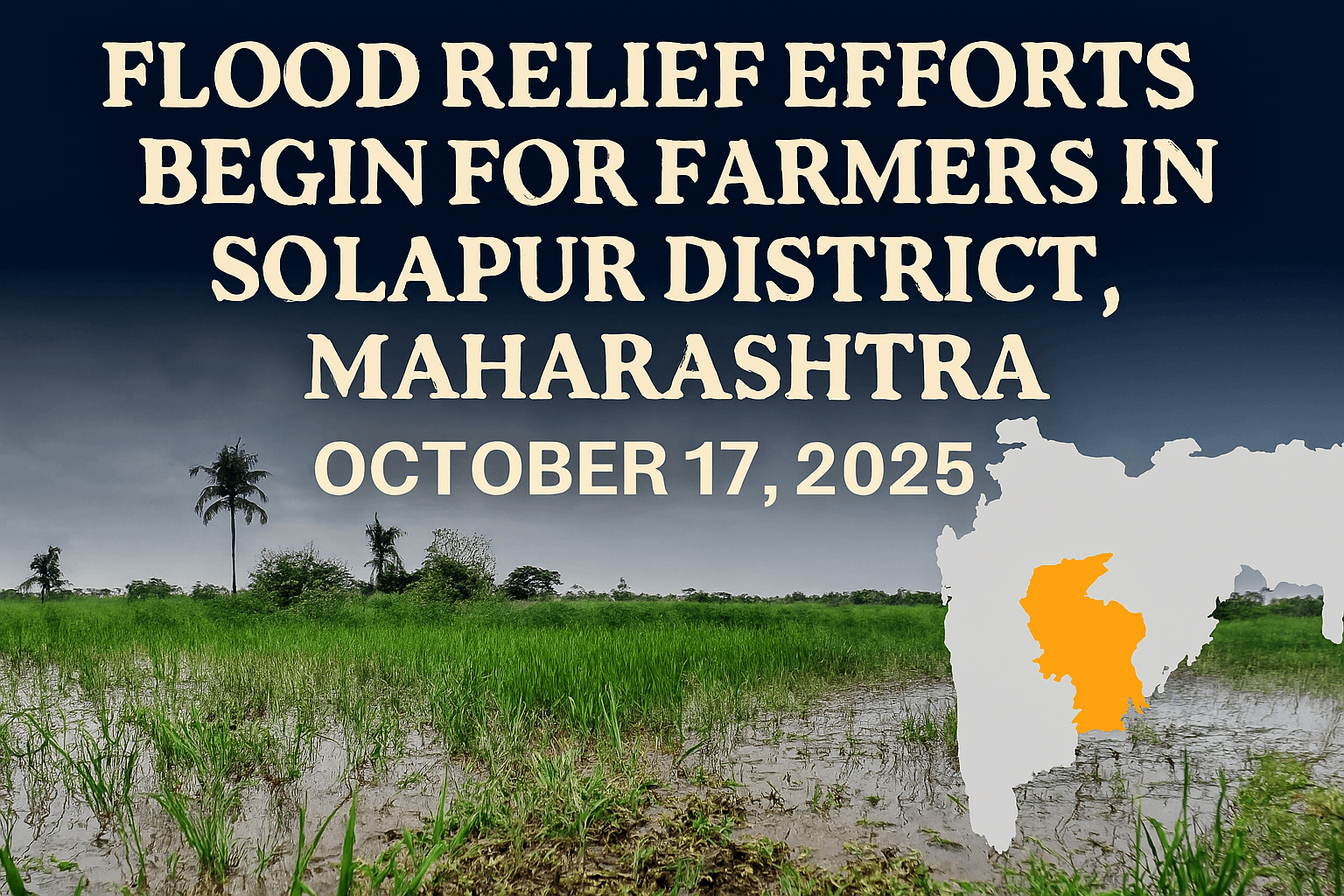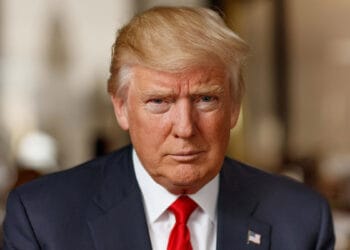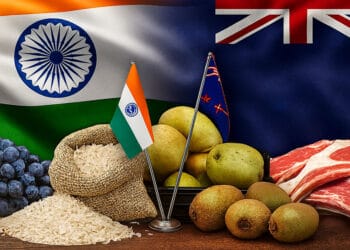Jaipur, October 29, 2025 — With the India–United Kingdom Free Trade Agreement (FTA) poised to come into effect early next year, exporters in Rajasthan are preparing for a significant surge in overseas shipments. The landmark trade deal, signed in July 2025, eliminates duties on 99% of Indian exports to the UK, offering a transformative opportunity for sectors like gems and jewellery, handicrafts, textiles, and renewable energy. For a state like Rajasthan—where traditional craftsmanship meets modern enterprise—the agreement could be a game-changer.
Background or Context
The India–UK FTA is the culmination of nearly three years of negotiations between New Delhi and London. As part of its post-Brexit trade diversification strategy, the UK has been actively pursuing bilateral agreements with high-growth economies. India, with its vast consumer base and export potential, emerged as a natural partner.
The agreement, signed during the 13th India–UK Joint Economic and Trade Committee (JETCO) meeting, aims to increase bilateral trade by £25.5 billion (approximately ₹3.01 lakh crore) annually. It covers a wide range of sectors including agriculture, pharmaceuticals, information technology, and renewable energy. However, for Rajasthan, the most immediate and visible impact is expected in the traditional export sectors—gems and jewellery, handicrafts, and textiles.
Historically, Rajasthan has been a major contributor to India’s exports in these categories. Cities like Jaipur, Jodhpur, and Udaipur are globally recognized for their artisanal excellence. With the removal of tariffs, these industries are expected to gain a competitive edge in the UK market, which has traditionally been dominated by suppliers from China, Thailand, and Hong Kong.
Detailed Analysis
According to data from the Gem & Jewellery Export Promotion Council (GJEPC), India exported approximately $400 million worth of gold, silver, and platinum jewellery to the UK in 2024. Rajasthan accounted for nearly 40% of this volume. With the FTA eliminating the 3–3.5% duty on jewellery items, exporters anticipate a 1.5x increase in shipments over the next two to three years.
“The removal of duties will allow us to price our products more competitively in the UK market,” said K.B. Goyal, owner of Dwarka Jewellers in Jaipur. “It also opens up new avenues for marketing and showcasing our designs abroad. We expect to give tough competition to Chinese and Thai exporters who have traditionally dominated the segment.”
Similarly, the handicrafts sector—which includes blue pottery, wooden furniture, and metalware—stands to benefit from the duty-free access. The UK has a strong demand for ethically sourced, handmade products, and Rajasthan’s artisans are well-positioned to meet this demand.
Textiles, another cornerstone of Rajasthan’s economy, are also expected to see a boost. With zero-duty access, exporters can now offer better margins to UK retailers, making Indian fabrics and garments more attractive in a price-sensitive market.
Supporting Data: Rajasthan’s Export Performance to the UK
| Sector | 2024 Export Value (USD) | Projected Growth (2025–2027) | FTA Impact |
|---|---|---|---|
| Gems & Jewellery | $160 million | +50% | Zero duty on gold, silver, platinum items |
| Handicrafts | $85 million | +40% | Increased demand for handmade goods |
| Textiles | $120 million | +35% | Competitive pricing due to duty removal |
| Renewable Energy Equipment | $45 million | +60% | UK incentives for green imports |
Expert Opinions
Trade policy expert Ridhish Rajvanshi, International Trade Law Consultant and Policy Advisor with the Centre for Trade and Investment Law (CTIL), believes the FTA will open new doors for Rajasthan’s exporters. “The agreement is not just about tariff elimination. It also includes provisions for mutual recognition of standards, simplified customs procedures, and digital trade facilitation. These elements will significantly reduce transaction costs for small and medium enterprises (SMEs),” he said.
Manish Gupta, Chairman of Insolation Energy Ltd, sees the FTA as a strategic opportunity to diversify India’s export base. “Currently, around 18–19% of India’s exports go to the United States. Greater access to the UK market will reduce our overdependence on a single geography and make our trade portfolio more resilient,” he noted.
Stephen Hickling, British Deputy High Commissioner to Gujarat and Rajasthan, echoed similar sentiments during a recent event organized by FICCI Rajasthan State Council. “This agreement is a win-win. It will not only boost trade but also deepen cultural and economic ties between our two nations. We are particularly excited about the potential in Rajasthan’s creative and green sectors,” he said.
Future Outlook
While the FTA offers immense potential, industry stakeholders caution that the benefits will not be automatic. Exporters will need to adapt to new compliance norms, upgrade their packaging and labeling standards, and invest in digital marketing to reach UK buyers.
“The UK market is highly regulated, especially when it comes to product safety and environmental standards,” said Anjali Mehta, a trade compliance consultant based in Mumbai. “Rajasthan’s exporters must ensure that their products meet these standards to avoid shipment rejections or penalties.”
There is also a need for capacity building at the grassroots level. Many artisans and small-scale manufacturers in Rajasthan operate in informal settings and lack access to export documentation, logistics, and financing. Government agencies like the Export Promotion Council for Handicrafts (EPCH) and the Ministry of MSME will need to step in with training programs, subsidies, and infrastructure support.
On the policy front, the Rajasthan government is reportedly working on a state-level export promotion strategy aligned with the FTA. This includes plans to set up export facilitation centers in Jaipur, Jodhpur, and Bhilwara, along with dedicated cargo corridors to ports in Gujarat and Maharashtra.
Conclusion
The India–UK Free Trade Agreement marks a significant milestone in India’s trade diplomacy and offers a rare window of opportunity for Rajasthan’s exporters. With duty-free access to one of the world’s most sophisticated markets, sectors like jewellery, handicrafts, and textiles are poised for a renaissance. However, realizing this potential will require coordinated efforts from businesses, policymakers, and support institutions.
As the global trade landscape becomes increasingly fragmented and competitive, Rajasthan’s ability to adapt, innovate, and scale will determine whether this FTA becomes a stepping stone or a missed opportunity. For now, the mood in Jaipur’s bustling markets and workshops is one of cautious optimism—and a renewed sense of purpose.



















